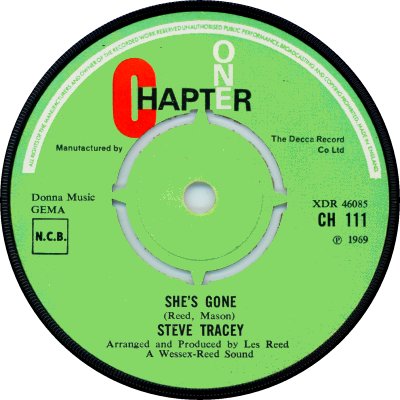
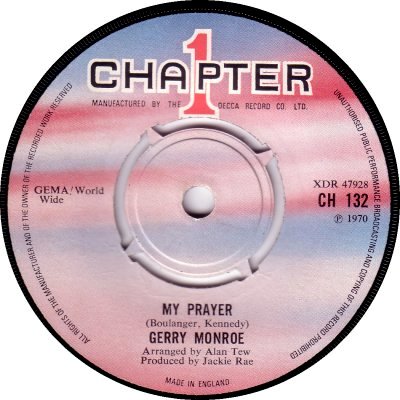
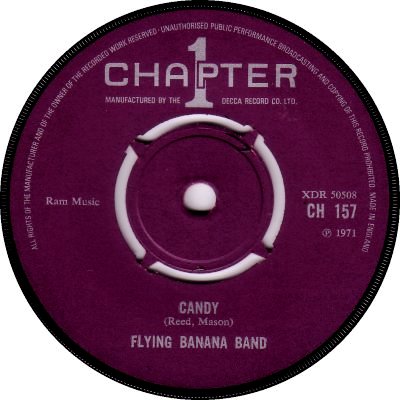
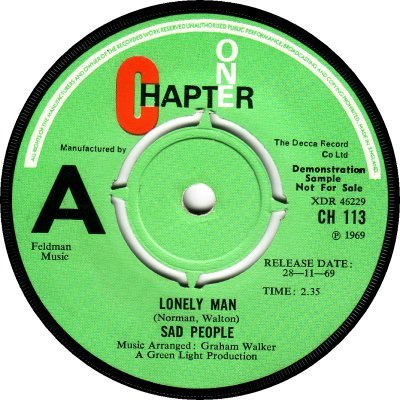
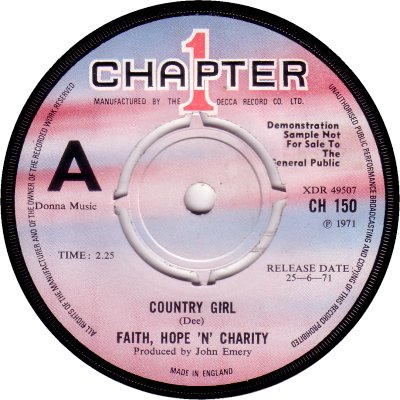
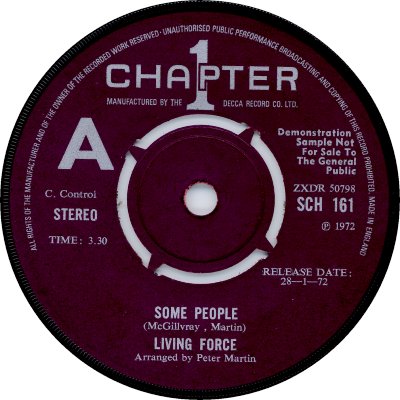
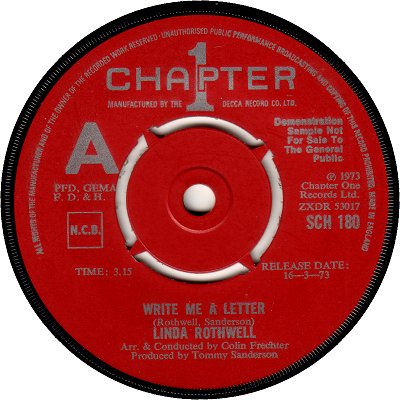
Started by musician/composer/arranger/director Les Reed, Chapter One was one of the Decca group of licensed labels. It might have been called 'Donna' - a report in 'Billboard' of the 8th of July 1967 said that Reed was going to set up an independent label of that name. 'Record Retailer' of the 3rd of January 1968, however, said that the new label was as yet untitled but that it was to be pressed by Decca and distributed by Decca's Selecta arm. 'RR' of the 31st of January confirmed that 'Donna' had been considered as a name but had been dropped as there was already a company of that name in America; instead 'Chapter One' had been decided upon. 'Donna' was retained but was applied only to the publishing arm of the Les Reed Organisation, 'Donna Music'. In an article in 'RR' of the 24th of July, Reed was quoted as saying that 'The Last Chapter' had also been considered as a name. He added that the company's aim was to concentrate on new talent but that it hoped to sign an international artist by September. Another aim, he went on, was to get a lot of Jazz on the label, especially in 7" form. That particular aim doesn't seem to have been realized. Chapter One was finally registered as a company on the 10th of January 1969 ('RR', 29th January), some seven months or so after the release of its first single.
Chapter One's relationship with Decca seems to have been a satisfactory one, as 'RR' of the 22nd of May 1971 reported that the deal had been extended for five years. A year later 'Music Week' (6th May 1972) said that Reed was planning to put some concentrated promotion behind Chapter One, but a mere sixteen months after that came the news that he was pulling out of the business side of the music industry in order to concentrate on writing and performing with his orchestra ('MW', 15th September 1973). As a result the Chapter One label was being phased out, though Decca would continue to use the trade mark until the expiry date of its licensing agreement. Only one more single was released after that date, and the final Chapter One record was Bryan Chalker's LP 'Daddy Sing Me A Song', which came out in December 1973.
As far as the singles market is concerned the company's big success was singer Gerry Monroe, who had six Top 50 hits in 1970-71. Chapter One tended to lean in the direction of MOR Pop material; it did however release the occasional Rock record - the album 'Scruffy Duffy' by Duffy (CHS R-814; 1973) is very collectable - and it boasted a short-lived Progressive Music offshoot, the Greenwich Gramophone Company (q.v.). Singles used a CH-100 numbering series, with an 'S' added to the front of the prefix for stereo records; as was the standard Decca practise at the time an 'R' was added after the prefix of records which had export restrictions placed on them. An initial green label design (1) gave way to a multicoloured one (2) in March 1970; that in turn was replaced by a plain plum-coloured one (3) in December 1971, at CH-157. The plum label lasted until the end. Demo records had issue labels with appropriate overprinting (4, 5, 6) until July 1972, when the Decca started using a dedicated red label for that purpose on its licensed labels (7). SCH-173 was the first Chapter One single to have the new red demo label. Some popular items remained on catalogue for a while after the closure, but none of the company's records were listed in the Decca catalogue for 1977, unless you count a Woods Band LP on Greenwich. By the time of the 1978 catalogue that, too, had disappeared.
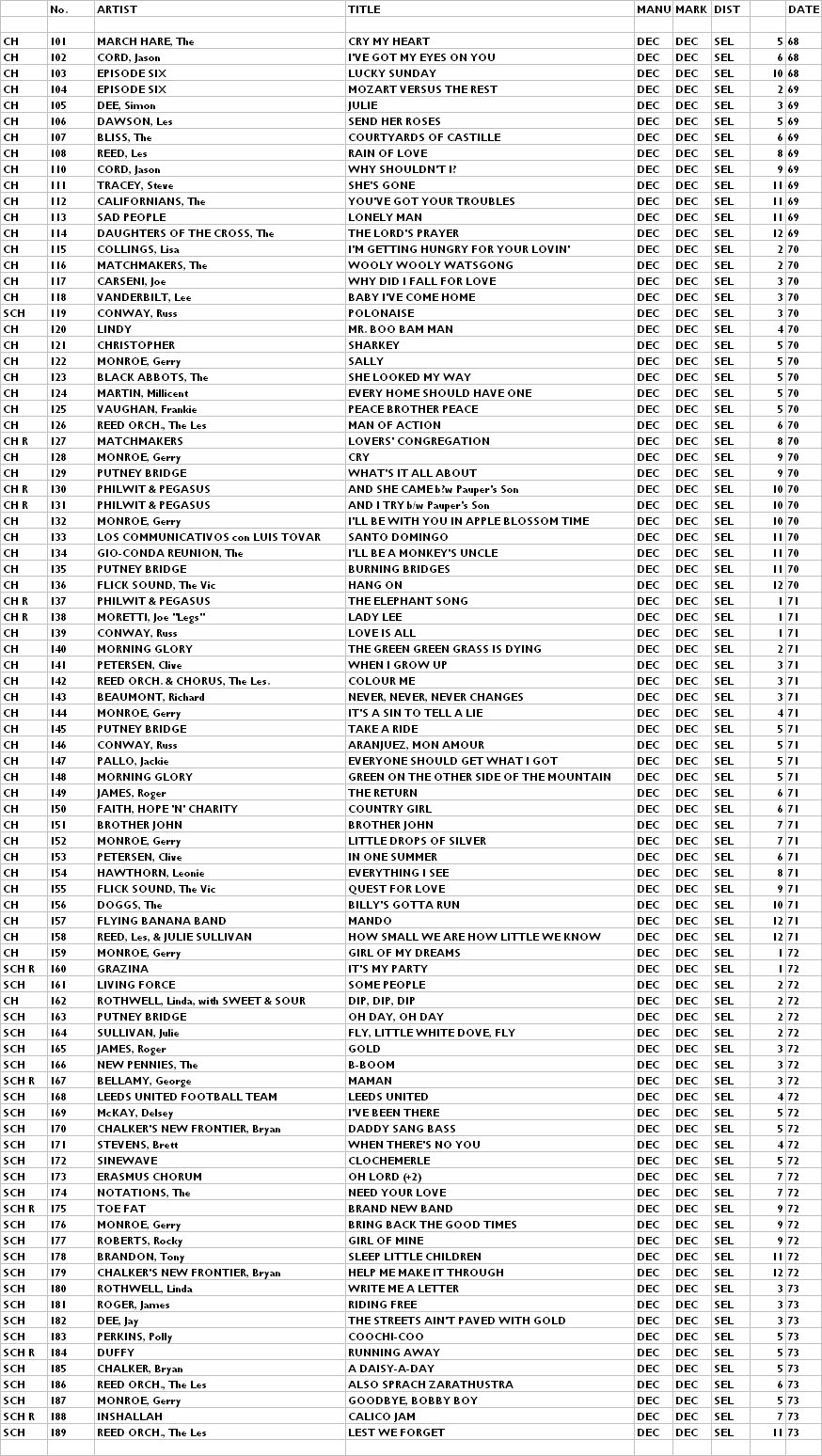


Copyright 2006 Robert Lyons.

